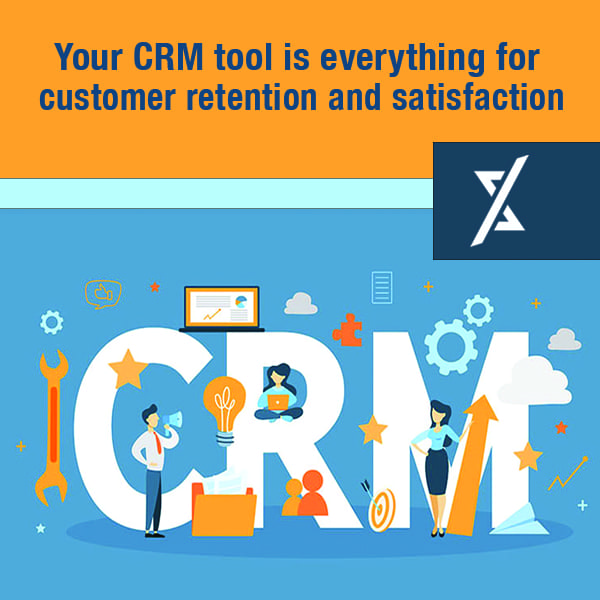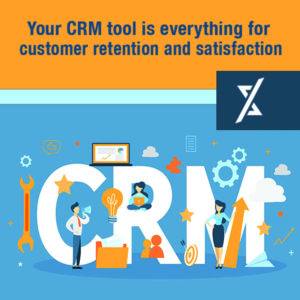CRMs Are More Than Just Knowing How to Use a Computer

Posted December 2nd, 2022 by Arnold Tijerina
Many people were initially put into the role of overseeing technology or Internet sales, or the CRM, because they knew how to use a computer. Back in the day, that was more than enough to qualify someone for this role. Unfortunately, that’s no longer good enough. Everyone on a dealership’s staff needs to be capable and trained on the technology, including how to use it.
No longer are things like eBlasts effective. And believe it or not, some dealers are still stuck on the idea that Internet leads all come from that eBlast button that sends out emails to customers in their database or from some list that they purchased. They assume that people will get that email and come flocking into the dealership in search of that next deal or their next new toy.
That’s hardly the case. Although customers might appreciate your emails, they’re not sitting around waiting for the next one to come in and tell them it’s time to go shopping.
Add to that the fact that the only thing that gets managed end-to-end in that system is an Internet lead, and even that isn’t managed as best it can be. That’s because it may or may not get follow-up, salespeople may or may not tell managers what they have done with that Internet lead, etc.—it becomes an issue where “Internet” needs to be redefined and the capturing of these leads needs to be fully documented as well as all of the interactions with the customer (or potential customer.)
It's 2022. We shouldn’t even be using the term “eBlast” anymore. And yet, it’s still how some dealers are handling their online business and that’s why they are missing the mark. Of course, it’s not just the sales team and managers that are missing the mark. New technology isn’t quite getting in the door, either.


Some CRMs Miss the Mark
Even the newest CRMs and most modern tools still lack so many resources and tools. Take, for example, the DealerCentric platform. This modern CRM lacks some of the best features. Their big claim to fame was a chatbot that could help partially qualify leads on the website. They had the right idea. They wanted to get the customer down the road in the transaction process, but they stopped because that was as far as the technology could go. This is a cautionary tale about taking technology to the level where you need it. Technology can limit the features and capabilities of a modern CRM, and pure ignorance dictates the metrics used to determine whether a CRM is working.
What metric do dealers use to find out if their CRM is working properly? Typically, most assume that it’s all good if they don’t hear from their sales team that it isn’t working as it should. Meanwhile, the real reason that managers are not hearing from them is that they’re not putting information into the system and the information they are, they’re just getting it in there and getting it done (or not putting in any information at all.)
Too often, people check the boxes because they have a CRM and no one is complaining about how it works (or how it doesn’t work). They call that “using a CRM” but it’s a lot more than that.
You must know:
- What is the right platform for your dealership?
- What is the right platform for your customer?
- How do these two elements overlap?
- What functionality do you need from a CRM?
- How can you use your CRM to deliver a better customer experience?
If you can deliver a better customer experience with the CRM that you use, you’re going to win in several ways. People will pay more money for better service. Not only that, but the only way to build brand loyalty and trust with customers is to deliver a higher caliber of customer experience with the tech stack that you use.
Artificial Intelligence and Its Role in the Powersports and Auto Industries
It seems like dealers are still trying to figure out what to feed into the AI and machine learning tools available to get their best outcome and use. Should dealers be looking for AI and machine learning components? Which ones will be most valuable? This depends on the specific dealership and will be something that needs to be evaluated along with the rest of the dealership’s tech stack.
AI and machine learning are more than just buzzwords. To the customer, AI is realistically not going to get very far. Eventually, there will be a need for a person to facilitate the rest of the transaction. Sure, bots can ask questions about what customers are looking for and help them get more information, but it’s all automatically loaded into the system and ready to go. It’s less artificial intelligence and more of a keyword-based decision tree.
People, by nature, want to deal with a person. They like the idea of Internet access and shopping, but there are certain transactions where they will want to enlist the assistance of a dedicated expert, so they aren’t going to benefit as much from AI and automation. The fact remains that salespeople get overwhelmed by the exponentially increasing “to-dos” within the CRM so they never get done and many managers don’t ask if they were. Many of those potential customers are lost and never followed up with and they fall into oblivion – and nobody knows.


